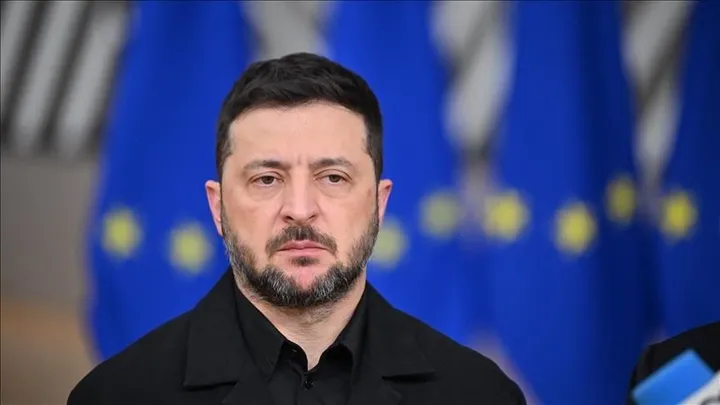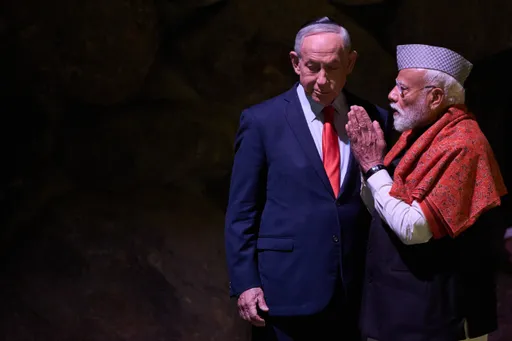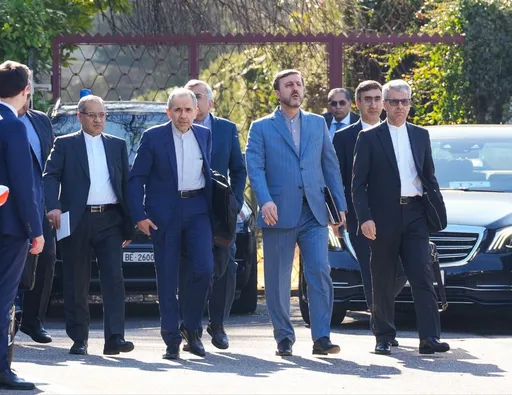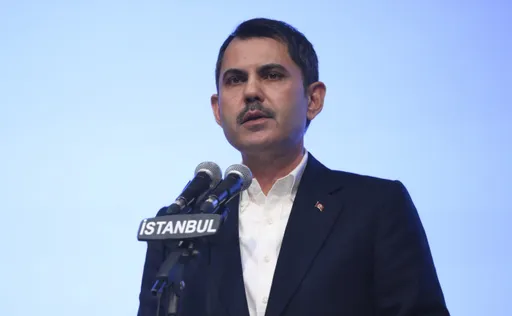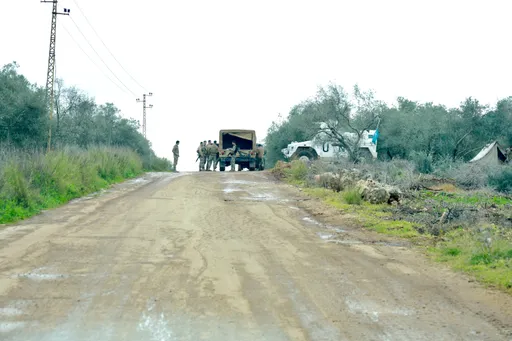When the contested Afghan President Ashraf Ghani delivered his inaugural speech in Kabul on Monday, there were more than a dozen prominent Pakistani politicians in the audience.
Almost all of them were ethnic Pakhtuns, who are the largest ethnic group in Afghanistan and the biggest minority in Pakistan. But two lawmakers, Mohsin Dawar and Ali Wazir have received the bulk of the negative publicity.
Initially, they were stopped from travelling by immigration officials at Islamabad airport. When they did arrive in Kabul, following Pakistani Prime Minister Imran Khan’s intervention, Ghani delayed his speech as he sent a helicopter to bring them to the venue. People on Twitter wondered - why the special treatment?
“The problem is with the slogan Ler ao ber yao Afghan (Afghans live on both sides of the border) which are raised in their protests. That rubs the Pakistani establishment in a wrong way,” Ghulam Dastageer, a journalist who has closely followed the developments in the region, told TRT World.
Dawar and Wazir are active members of the Pashtun Tahafuz (Protection) Movement (PTM), which in the past two years has staged rallies and protests against Pakistan's powerful military and the effects of the war on terror on the Pakhtun population.
It drives support mainly from the tribal regions that border Afghanistan. Offensives against the militants have destroyed homes and businesses in the mountainous region. Tens of thousands have been displaced and their return obstructed by government indifference and delays in compensation.
The PTM, which came to prominence in 2018 after the extrajudicial murder of a young Pakhtun man in Karachi by a notorious police officer, welcome the statements and tweets, which Afghan leaders release in its favour.
Pakistan and Afghanistan have a testy relationship. The two countries share a 2,400-kilometre-long border called the Durand Line, which cuts right through the Pakhtun heartland. Kabul doesn’t recognise the border.
Successive Afghan governments have castigated Pakistan for interfering in their internal affairs. Ghani and his predecessor, Hamid Karzai, also accuse Islamabad of backing the Taliban.
On the other hand, Pakistan has hosted millions of Afghan refugees since the 1980s when the former Soviet Union invaded Afghanistan. Karzai, Ghani and other Afghan leaders have all stayed in Pakistan at some point.
The Pakhtun connection
It’s not uncommon for Pakhtuns who live in Pakistani tribal areas such as Bajaur and Khyber to have family members in the Afghan cities of Khost and Kabul.
Pakhtun nationalism that transcends borders is not new. But Pakistan has been wary of increasing Afghan backing of the PTM, which is an indigenous movement rooted in local issues.
Shamim Shahid, an expert on Afghanistan, says Kabul’s overtures towards the PTM must not be seen as interference.
“Whenever there’s anything related to Pakhtuns - be it the ethnic strife in Karachi with the Mohajirs or a terrorist attack - the Afghan government has protested. It’s nothing new,” he told TRT World.
Similarly, he says, Pakistani Pakhtun politicians have always kept close relationships with Afghan leaders, ranging from former Prime Minister Dr Mohammad Najeebullah to Karzai.
The Taliban government, which was in power in Afghanistan in the mid-1990s, included a few Pakistanis who were from places such as Bajaur, he says.
While nationalists from parties such as the Quetta-based Pashtoonkhwa Milli Awami Party have indeed kept ties with Kabul, they rarely come into open confrontation with the military or other state institutions.
At the PTM rallies, it’s common to hear slogans, which blame the military for militancy in the region.
Furthermore, pictures circulated showing Dawar and Wazir with Amrullah Saleh, the head of Afghanistan’s intelligence, who is accused by Islamabad of harbouring terrorists who have carried out deadly attacks in Pakistan.
An Afghan counterbalance?
Dawar and Wazir are members of Pakistan’s national assembly. They have both won seats from the tribal areas of North and South Waziristan. A lawyer by profession, Dawar has been the PTM’s voice in the assembly.
“One should not give it a spin. Yes, the fact is that eyebrows have been raised because these two PTM leaders were invited but that is a tit-for-tat policy which the Afghan government is playing now,” Amina Khan, a senior researcher at Institute of Strategic Studies Islamabad (ISSI), told TRT World.
“Pakistan’s ambassador in Kabul also took part in the swearing-in ceremony. So in other words, it’s also an endorsement by our government.”
But Pakistan’s powerful military continues to view the PTM as a threat. Its media coverage is prohibited, key leaders have faced restrictions from travelling abroad and it has in the past faced accusations of receiving foreign support.
Yet, the authorities have never been able to bring forward any evidence, says Dastageer.
“If they even had an iota of evidence against PTM [for taking support], they would have literally bulldozed them,” he said.
Though it might have good relations with the PTM, the Afghan government doesn’t have the resources to back it up like the Pakistanis can do in case of Taliban, he says.
The Taliban has just recently signed a peace deal with the United States that envisages the withdrawal of American troops over the next year. That has put Ghani in a difficult spot as he wasn’t part of the negotiations and his government forces have faced increasing attacks from the Taliban.
Pakistan was among the countries that helped broker the US-Taliban peace deal.
There is also no comparison between the Taliban and PTM, says Dastageer. “Taliban are an armed movement. PTM is a non-violent group and Afghanistan is in no position to support them,” he explained.
Islamabad would be better off trying to meet the demands of the protestors.
ISSI’s Khan says Pakistan must rebuild the tribal region. “There was a lot of destruction and they have genuine concerns. If the establishment [Pakistani state] feels that some foreign power can misuse PTM, then they need to step in and address their grievances right away.”

